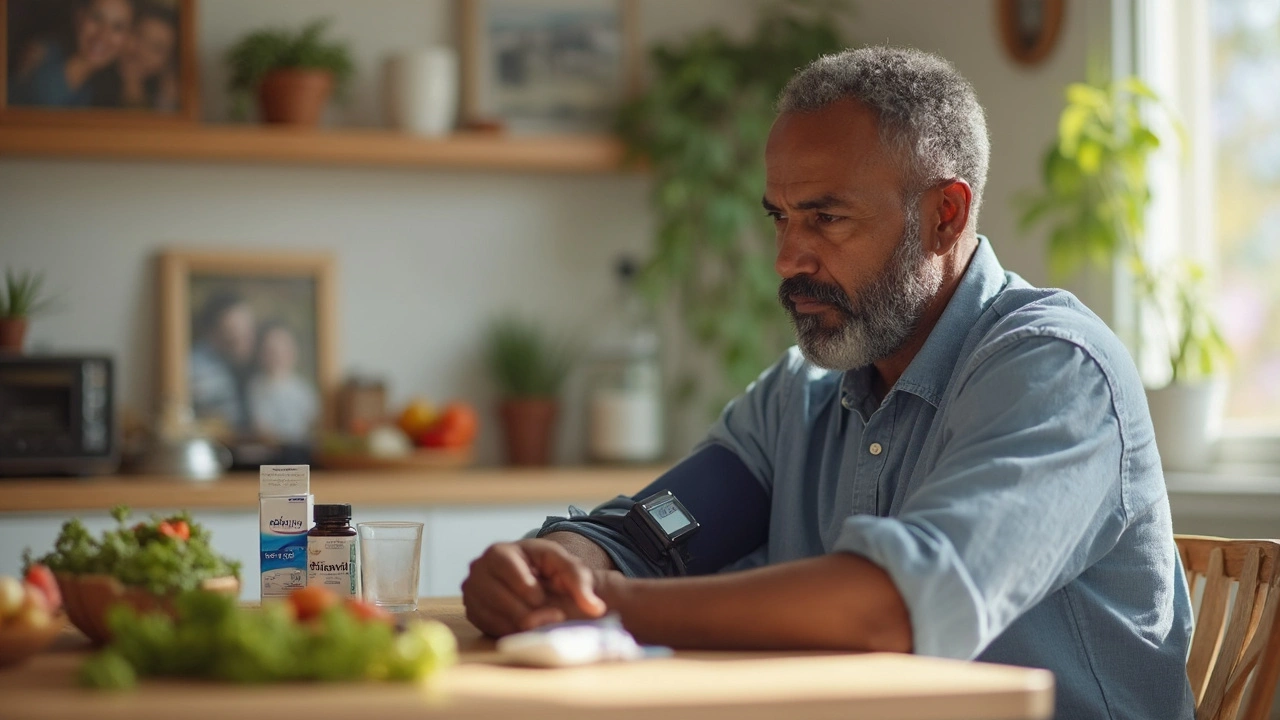High blood pressure, or hypertension, is when the force of blood against your artery walls stays too high for too long. Most people don’t feel a thing, but the extra pressure can damage the heart, kidneys, and brain over time. That’s why getting a handle on it early makes a huge difference in staying healthy.
Several things can push your numbers up. Age is a big factor – arteries naturally stiffen as you get older. Genetics also play a role; if your parents had hypertension, you’re more likely to develop it. Lifestyle habits matter a lot: eating lots of salty foods, being overweight, not moving enough, and drinking too much alcohol can all raise pressure. Stress isn’t a direct cause, but frequent spikes from stress can keep your average numbers higher.
When your body senses high pressure, it releases hormones that make blood vessels tighter and tell the kidneys to hold onto water. This creates a loop that keeps the pressure climbing. Over time, the heart works harder, the arteries get scarred, and the risk of heart attack, stroke, and kidney disease jumps.
Good news: most people can bring their blood pressure down with a few everyday changes. The DASH diet (Dietary Approaches to Stop Hypertension) is a proven starter – load up on fruits, veggies, whole grains, lean proteins, and low‑fat dairy while cutting back on processed foods and added sugar.
Watch your sodium intake. Aim for less than 1,500 mg a day if you can; that’s about a teaspoon of salt. Reading labels helps because many “healthy” snacks sneak in extra salt.
Physical activity is a game‑changer. Even a brisk 30‑minute walk most days can drop systolic pressure by 4–9 mmHg. If you’re new to exercise, start slow and build up – the key is consistency, not intensity.
Maintaining a healthy weight matters too. Losing just 5–10 % of body weight can shave off a similar amount of pressure. Pair that with limiting alcohol – no more than two drinks a day for men and one for women.
If lifestyle tweaks aren’t enough, doctors often prescribe medication. Common classes include ACE inhibitors, ARBs, calcium‑channel blockers, thiazide diuretics, and beta‑blockers. Each works a little differently, so your doctor will pick the one that fits your health profile. If you’re worried about side effects, ask about alternatives like newer beta‑blocker options or combination pills that reduce pill burden.
Regular monitoring is vital. Home blood pressure cuffs are affordable and give you a real‑time picture of how well your plan is working. Track the readings, note any patterns, and share them with your healthcare provider.
Stress management rounds out the approach. Simple techniques – deep breathing, short meditation sessions, or a hobby you love – can calm the nervous system and keep spikes down.
In short, hypertension is a silent but fixable problem. By watching what you eat, staying active, keeping a healthy weight, and working with your doctor on medication when needed, you can keep your blood pressure in a safe zone and protect your heart for years to come.

Learn how Prinivil (lisinopril) helps manage blood pressure, its side effects, who should take it, and real-world tips for safer use. Candid, clear, human advice.